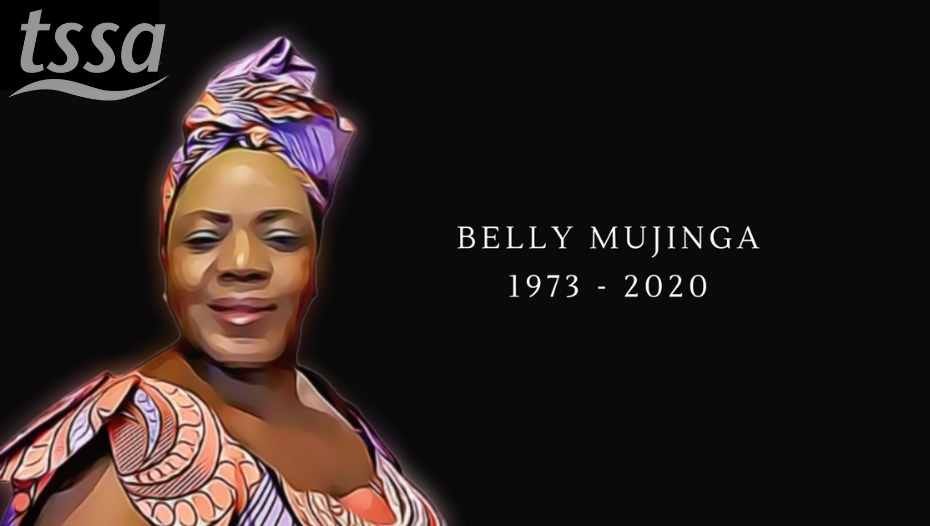NEWS.CATEGORY: Health and safety
TSSA backs calls for 'vital' Belly Mujinga inquest

TSSA General Secretary, Manuel Cortes, has said his union is backing calls for a 'vital' coroner's inquest into the death of Belly Mujinga, because 'a number of important questions remain unanswered'.
North London Coroner – Andrew Walker – is deciding whether to hold an inquest into the death of the 47-year-old transport worker who was a TSSA member.
Belly died on 5th April last year just two weeks after it was reported she was coughed on by a customer at London's Victoria station (21st March). A Panorama investigation subsequently raised serious questions about the inquiries into her death carried out by her employer, GTR (Govia Thameslink Railway) and the police.
In a letter to the coroner, Manuel Cortes writes that "it's now vital we have an inquest into Belly’s death, to establish the facts’"
He also writes that Belly’s ‘tragic death from Covid-19 touched the nation; she was a front-line transport worker with a young daughter who died so early in the pandemic’, adding that, "an inquest would allow proper public scrutiny of the events which led to Belly's death, as well as being of considerable material benefit to her relatives".
In the letter, Manuel Cortes highlights a number of questions and areas of concerns – which he has raised in an earlier letter to the Prime Minister.
These include:
- Was Belly spat at?
- Why did GTR produce two different versions of its internal investigation findings?
- Why did the company allow Belly to work on the station concourse given she had an underlying serious medical condition?
- What did her employers do to protect her and other staff?
Full text of the letter
Andrew Walker
Coroner
North London Coroner’s Court
29 Wood St
Barnet EN5 4BE
8th March 2021
Dear Mr Walker
I’m writing to call for an inquest into the death of our member, Belly Mujinga, as the first anniversary of the incident at Victora station approaches (21st March 2020) and in the light of the BBC Panorama investigation (12th October 2020), 'Belly Mujinga: Searching for the Truth'.
As our union has consistently pointed out – a number of important questions remain unanswered about Belly Mujinga’s death. Also highlighted by the programme these relate to the alleged coughing incident at Victoria station involving a man who, it was reported at the time, had been acting in an agitated and aggressive manner.
You will be aware how deeply her tragic death from Covid-19 touched the nation; she was a front-line transport worker with a young daughter who died so early in the pandemic, just two weeks after the incident at Victoria. An inquest would allow proper public scrutiny of the events which led to Belly's death, as well as being of considerable material benefit to her relatives.
As you are probably aware there has been a number of investigations into Belly's death. However, none have been open to public scrutiny, thus denying her family the closure they need. Our union called for an inquest at the time Belly died and we have no hesitation in repeating this call to you formally today, given the pressing need to illuminate the facts of this case.
An inquest would also give a clear signal to transport workers and many others on the front-line during this pandemic that their lives really do matter. Formal inquest proceedings are also likely to help prevent similar cases arising in future.
In short – it’s now vital we have an inquest into Belly’s death, to establish the facts which remain, in Panorama’s words, "bitterly contested".
As things stand there are simply too many gaps and glaring omissions – as highlighted by a range of expert doctors, scientists and lawyers interviewed in the documentary.
Questions I have raised with the Prime Minister, and which require further examination, are –
- Has the spitting allegation been properly and fully examined? Belly’s family claim she told them she had been spat at, and a police officer is quoted in the BBC film saying “we are in no doubt something has happened there.”
- When Belly’s employer, Govia Thameslink Railway (GTR) learned of the incident how did the company react to protect Belly and other staff?
- Why was Belly allowed to work on the station concourse given she had an underlying serious medical condition (sarcoidosis) which affected her breathing?
- Why did it take a phone call from one of Belly’s doctors before she was stood down from work?
- Why did GTR produce two different versions of its internal investigation findings – with only one showing that Belly’s condition had led to throat surgery and required regular medical check-ups?
- When GTR began their own investigation why did the company not call in the police?
- Why was it seven weeks after the incident before British Transport Police (BTP) were alerted?
- Why hasn’t the footage of the incident been released?
- How can police be sure the 57 year-old man interviewed about the incident did not have, or had not had, the virus given that the negative antibody test he’d had at that time may have been unreliable?
NB: This point is highlighted in the BBC programme by both a Professor of Microbiology and a Professor of Clinical Immunology. Indeed, Professor Jon Deeks, Professor of Biostatistics at the University of Birmingham, tells the BBC "the police have made a mistake here with the interpretation of that evidence."
Panorama also highlighted conflicting reports about whether the man told Belly and her colleague, Motolani Sunmola, that he "had the virus".
As Martin Forde QC told the programme: "I feel there are sufficient doubts and conflicts around the facts of this case to justify an investigation."
Please act without delay, and in the national interest, by holding an inquest into the death of Belly Mujinga.
Yours sincerely
Manuel Cortes
TSSA General Secretary
